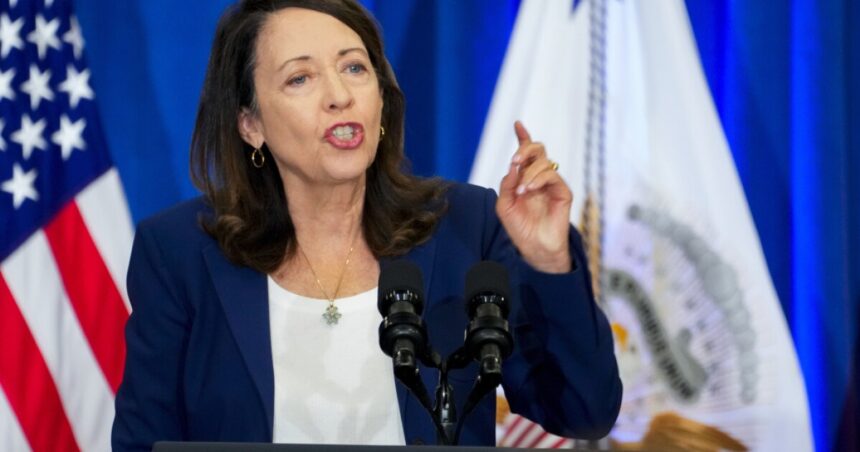A bipartisan group of U.S. senators introduced a bill Thursday that would protect creatives and their content from unauthorized use by artificial intelligence and its developers.
In part, the Content Origin Protection and Integrity from Edited and Deepfaked Media Act, or the COPIED Act, aims to require developers or providers of AI tools to allow content owners to attach “content provenance information” to their work. The bill defines this as “machine-readable information documenting the origin and history of a digital asset.”
If the content has provenance information attached, the bill would prohibit using it to train AI models or generate AI content, as well as its removal or alteration without the creator’s approval. This gives the creator the ability to protect and set terms of use for their work, including compensation, as stated in the bill. Internet platforms, search engines, and social media companies would also be prohibited from interfering with content provenance information in the same ways.
RELATED STORY | Tennessee is the first state to protect musicians from AI infringement
Owners of covered content and state attorney generals would be able to sue violators who use work without permission under the COPIED Act.
To enforce the bill, the National Institute of Standards and Technology would be required to develop guidelines and standards for content provenance information, watermarking, and synthetic content detection. This, as per the bill, would promote transparency in whether content has been impacted by AI.
U.S. Sens. Maria Cantwell, D-Washington, Marsha Blackburn, R-Tennessee, and Martin Heinrich, D-New Mexico, who is also a member of the Senate AI Working Group, introduced the bill.
Sen. Heinrich stated that if enacted, the COPIED Act would provide necessary technical tools to “help crack down on harmful and deceptive” AI in content.
“Congress needs to step up and pass this legislation to protect the American people,” Sen. Heinrich said.
RELATED STORY | Billie Eilish, Stevie Wonder, more sign letter calling for AI defenses
A number of groups representing the creative community have endorsed the bill. Among them, the actors’ union SAG-AFTRA, Nashville Songwriters Association International, Recording Academy, National Newspaper Association, Artist Rights Alliance, and more provided statements of support to the Senate Committee on Commerce, Science, and Transportation.
Many of those groups have already signed contracts with other major organizations such as TV studios and music labels to protect themselves against AI. In March, SAG-AFTRA ratified new contracts to require permissions before altering actors’ voices or using them to model AI, among other provisions.





